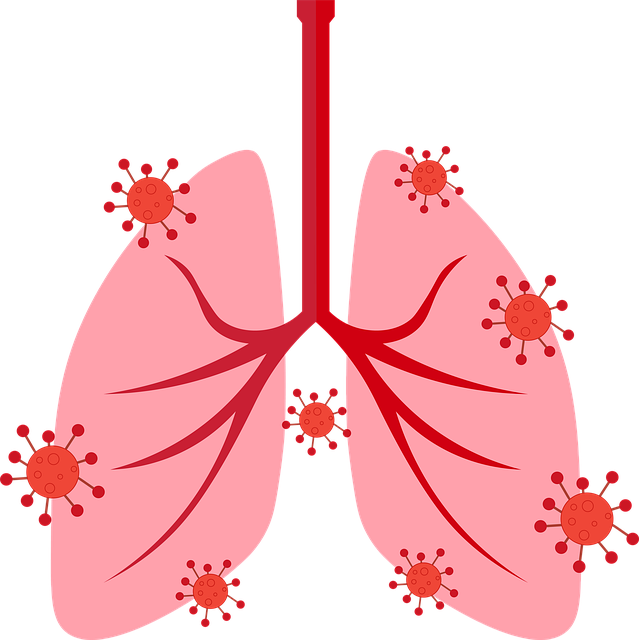The Endocannabinoid System (ECS) is a complex network crucial for maintaining internal balance in the human body, regulating functions like pain perception, appetite, mood, memory, and immune response. This system interacts with cannabinoids, including those found in cannabis, offering potential therapeutic benefits for various conditions. Understanding the ECS is key to harnessing these benefits while mitigating risks associated with cannabinoid use. Future research aims to develop targeted medications based on ECS interactions for improved medical treatments.
Unraveling the mysteries of the endocannabinoid system (ECS) offers a profound understanding of our body’s intricate balance. This complex network, pivotal for maintaining homeostasis, involves cannabinoids that play a dynamic role in various physiological processes. By exploring how cannabinoids interact with the ECS, we gain insights into their impact on health and well-being. From potential therapeutic applications to risks and future innovations, this comprehensive guide delves into the world of endocannabinoid system care.
What is the Endocannabinoid System?

The Endocannabinoid System (ECS) is a complex physiological system that plays a pivotal role in maintaining homeostasis, or balance, within the human body. It’s a network of receptors and molecules that interact to regulate various bodily functions, including pain perception, appetite, mood, memory, and immune response. Understanding the ECS is crucial when exploring how cannabinoids, like those found in cannabis, affect our bodies.
This system is named after the plant cannabinoid tetrahydrocannabinol (THC), which was initially identified due to its interaction with the body’s receptors. The ECS consists of endocannabinoids, which are endogenous molecules produced by our bodies, and cannabinoid receptors located throughout different tissues and organs. It acts as a regulatory system, ensuring optimal health by maintaining balance in response to internal and external stimuli.
The Role of Cannabinoids in the Body

Cannabinoids play a pivotal role in maintaining homeostasis, the body’s natural balance, by interacting with the endocannabinoid system (ECS). This intricate system is comprised of endocannabinoids (natural compounds produced by our bodies), cannabinoid receptors (CB1 and CB2), and enzymes that create and degrade endocannabinoids. The ECS is involved in a wide range of physiological processes, including pain perception, appetite regulation, mood, memory, and immune function.
When introduced to the body, exogenous cannabinoids like those found in cannabis plants mimic the actions of endocannabinoids by binding to these receptors. This interaction can modulate signaling pathways, leading to various effects on the body and mind. Understanding the complex interplay between cannabinoids and the ECS offers valuable insights into potential therapeutic applications for conditions such as chronic pain, inflammation, and neurological disorders.
How Cannabinoids Interact with the Endocannabinoid System

Cannabinoids interact with the endocannabinoid system (ECS), a complex cellular network that plays a crucial role in maintaining homeostasis, or balance, within the body. The ECS is comprised of three key components: endocannabinoids (natural compounds produced by the body), cannabinoid receptors (specific targets on cells), and enzymes that break down endocannabinoids. Cannabinoids, whether derived from plants (like THC and CBD) or synthesized chemically, mimic the action of endocannabinoids by binding to these receptors.
This interaction triggers a series of responses that can modulate various physiological processes, including pain perception, appetite, mood, memory, and inflammation. For example, when cannabinoids bind to CB1 receptors in the brain, they can influence pleasure, motivation, and cognition. Similarly, binding to CB2 receptors in immune cells may reduce inflammation and suppress immune reactions. Understanding how cannabinoids interact with the ECS is essential for developing therapeutic strategies that leverage these compounds’ potential benefits while minimizing adverse effects.
The Impact of Cannabis Consumption on the ECS

Cannabis consumption significantly impacts the endocannabinoid system (ECS), a vital physiological network that plays a central role in maintaining homeostasis, or balance, within the body. When cannabis compounds, particularly cannabinoids like THC and CBD, enter the system, they interact with specific receptors located in various organs and tissues. This interaction triggers a cascade of events, leading to potential therapeutic effects and altered physiological states.
Understanding the ECS is crucial as it helps elucidate why cannabis has such diverse impacts on the body. The system comprises endocannabinoid molecules, receptors, and enzymes that facilitate communication between different cells and organ systems. By binding to these receptors, cannabinoids can modulate pain perception, appetite, mood, memory, inflammation, and other physiological processes, offering potential relief for various medical conditions.
Health Benefits and Therapeutic Applications

The interaction between cannabinoids and the endocannabinoid system (ECS) has opened up a world of potential health benefits and therapeutic applications. The ECS, a complex signaling system within our bodies, plays a pivotal role in maintaining homeostasis—the internal balance necessary for optimal health. By binding with cannabinoid receptors, compounds like THC and CBD can modulate various physiological processes, including pain perception, inflammation, mood regulation, and appetite.
These interactions have led to significant interest in the medical community, driving research into the use of cannabinoids for a range of conditions. For example, cannabinoids have shown promise in managing chronic pain, reducing inflammation in arthritis and other autoimmune disorders, and potentially mitigating anxiety and depression. Moreover, their anti-inflammatory properties suggest they could be valuable in neurodegenerative diseases like multiple sclerosis, while their ability to stimulate appetite can aid patients undergoing cancer treatment who experience severe nausea and loss of appetite.
Potential Risks and Side Effects

Understanding the Endocannabinoid System (ECS) is crucial when discussing potential risks and side effects associated with cannabinoids. The ECS is a complex biological system that regulates various physiological processes, including mood, memory, appetite, and pain perception. When exogenous cannabinoids, like THC or CBD, interact with the ECS, they can influence these systems, leading to both beneficial effects and possible adverse reactions.
While cannabis products have gained popularity for their therapeutic benefits, it’s important to be aware of potential risks. Side effects may include altered cognitive function, anxiety, dizziness, and changes in heart rate. Chronic use could lead to more serious issues such as respiratory problems or psychological dependencies. As with any substance, responsible consumption and understanding one’s personal tolerance are essential to minimize these risks.
Future Research and Innovations

As we continue to unravel the mysteries of the endocannabinoid system, future research holds immense potential for groundbreaking innovations. Understanding the intricate interplay between cannabinoids and this vast network could lead to revolutionary advancements in medicine. For instance, further exploration could reveal novel therapeutic approaches for various conditions, from chronic pain and inflammation to mental health disorders.
The key lies in deciphering the complex signaling pathways within the endocannabinoid system and how they modulate physiological processes. By delving deeper into these mechanisms, scientists may unlock new possibilities for treating previously untreatable ailments. This could involve developing targeted medications that interact specifically with endocannabinoid receptors, offering more effective and safer therapies while minimizing side effects. Such advancements would not only improve quality of life but also expand the horizon of medical science’s potential.
Exploring Personalized ECS Care

Exploring personalized ECS care involves delving into the intricate understanding of the endocannabinoid system (ECS). This complex biological system plays a pivotal role in maintaining homeostasis, acting as the body’s own natural regulatory network. By interacting with cannabinoids, both endogenous and exogenous, the ECS influences various physiological processes, including mood, memory, pain sensation, appetite, and immune function.
Personalized care leverages this knowledge by tailoring interventions to support optimal ECS function. This may include dietary adjustments to incorporateECS-supporting nutrients, targeted supplementation with phytocannabinoids or synthetic analogs, and even lifestyle modifications aimed at reducing stress and promoting sleep quality—all strategies that can enhance the body’s natural ability to regulate and balance itself.
